|
Books Should Be Free Loyal Books Free Public Domain Audiobooks & eBook Downloads |
|
|
Books Should Be Free Loyal Books Free Public Domain Audiobooks & eBook Downloads |
|
Non-fiction |
|---|
|
Book type:
Sort by:
View by:
|
By: Edward Streeter (1891-1976) | |
|---|---|
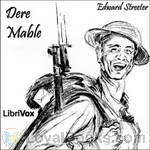 Dere Mable
Dere Mable
Bill is in training camp, preparing to go off to World War I. This book is a collection of love letters written to his sweetheart, Mable. The letters are humorous, mis-spelled, and have many stories of life in an army camp – all from Bill’s unique perspective. | |
By: Mamie Dickens (1838-1896) | |
|---|---|
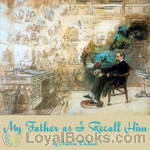 My Father As I Recall Him
My Father As I Recall Him
“If, in these pages, written in remembrance of my father, I should tell you, my dear friends, nothing new of him, I can, at least, promise you that what I shall tell will be told faithfully, if simply, and perhaps there may be some things not familiar to you.” So begins chapter one of My Father as I Recall Him, the personal recollections of Mary Dickens, (Mamie, as she was called), the oldest daughter of the great novelist, Charles Dickens. | |
By: Oliver Wendell Holmes (1841-1935) | |
|---|---|
 The Path of the Law
The Path of the Law
| |
 Oliver Wendell Holmes, Sr. Works
Oliver Wendell Holmes, Sr. Works
| |
By: Oliver Wendell Holmes, Sr. (1809-1894) | |
|---|---|
 My Hunt After 'The Captain'
My Hunt After 'The Captain'
Holmes describes his frantic search through Civil War torn landscapes for his wounded son, the future Supreme Court Justice. Originally published in The Atlantic Magazine, 1862. Holmes, Sr. (1809 -1894) was an American physician, poet, professor, lecturer, and author. He was regarded by his peers as one of the best writers of the 19th century. His most famous prose works are the "Breakfast Table" series, which began with The Autocrat of the Breakfast Table (1858). He is also recognized as an important medical reformer. | |
By: Samuel Smiles (1812-1904) | |
|---|---|
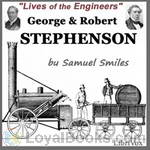 Lives of the Engineers (George and Robert Stephenson)
Lives of the Engineers (George and Robert Stephenson)
George Stephenson did not invent the steam engine, that was due to Newcomen and later to James Watt. He did not invent the steam locomotive, that was due to a number of people including Cugnot, Trevithick and others. He did not invent the Railway. Railways or tramways had been in use for two hundred years before Stephenson.The reason why Stephenson was known as ‘The father of the steam locomotive’ was that he took a primitive, unreliable and wholly uneconomic device and turning it into an efficient... | |
 Men of Invention and Industry
Men of Invention and Industry
| |
By: Elinore Pruitt Stewart (1878-1933) | |
|---|---|
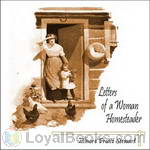 Letters of a Woman Homesteader
Letters of a Woman Homesteader
The writer of the following letters is a young woman who lost her husband in a railroad accident and went to Denver to seek support for herself and her two-year-old daughter, Jerrine. Turning her hand to the nearest work, she went out by the day as house-cleaner and laundress. Later, seeking to better herself, she accepted employment as a housekeeper for a well-to-do Scotch cattle-man, Mr. Stewart, who had taken up a quarter-section in Wyoming. The letters, written through several years to a former employer in Denver, tell the story of her new life in the new country... | |
By: Robert Falcon Scott (1868-1912) | |
|---|---|
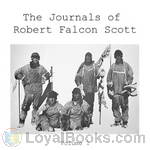 The Journals of Robert Falcon Scott
The Journals of Robert Falcon Scott
Capt. Robert F. Scott's bid to be the leader of the first expedition to reach the South Pole is one of the most famous journeys of all time. What started as a scientific expedition turned out to be an unwilling race against a team lead by R. Admunsen to reach the Pole. The Norwegian flag already stood at the end of the trail when Scott's party reached their target. All the five men of the Scott expedition who took part in the last march to the Pole perished on their way back to safety. Robert F. Scott kept a journal throughout the journey, all the way to the tragic end, documenting all aspects of the expedition... | |
By: A. Hyatt (Alpheus Hyatt) Verrill (1871-1954) | |
|---|---|
 Knots, Splices and Rope Work A Practical Treatise
Knots, Splices and Rope Work A Practical Treatise
| |
By: Horatio Nelson | |
|---|---|
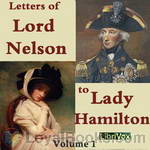 The Letters of Lord Nelson to Lady Hamilton
The Letters of Lord Nelson to Lady Hamilton
Horatio Nelson, 1st Viscount Nelson, 1st Duke of Bronté, KB (29 September 1758 – 21 October 1805) was an English flag officer famous for his service in the Royal Navy, particularly during the Napoleonic Wars. He won several victories, including the Battle of Trafalgar in 1805, during which he was killed. These are the letters that he wrote to Lady Hamilton, with whom he was having a notorious affair until his death in 1805. | |
By: Ward Muir (1878-1927) | |
|---|---|
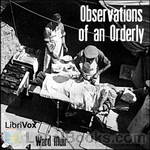 Observations of an Orderly
Observations of an Orderly
Ward Muir brings us into the heart of an English war hospital, describing scenes of cleanliness, triumph, order and sadness. Through the eyes of the orderly we get to see the processes that kept the wards running, and relive some tales from within the hospital walls. | |
By: Katharine Elizabeth Dopp (1863-1944) | |
|---|---|
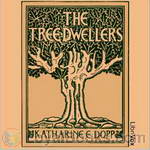 The Tree-Dwellers
The Tree-Dwellers
Katharine E. Dopp was well-known as a teacher and writer of children’s textbooks at the turn of the 20th Century. She was among the first educators to encourage the incorporation of physical and practical activity into the elementary school curriculum at a time when such activities were becoming less commonplace in a child’s home environment. The Tree-Dwellers – The Age of Fear is the first in a series of elementary school texts written by Ms. Dopp that focus on the anthropological development of early human groups... | |
By: Oliver Lodge (1851-1940) | |
|---|---|
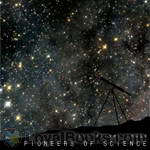 Pioneers of Science
Pioneers of Science
This book takes its origin in a course of lectures on the history and progress of Astronomy arranged for Sir Oliver Lodge in the year 1887. The first part of this book is devoted to the biographies and discoveries of well known astronomers like Copernicus, Brahe, Kepler, Galileo and Newton. In the second part, the biographies take a back seat, while scientific discoveries are discussed more extensively, like the discovery of Asteroids and Neptune, a treatise on the tides and others. | |
By: Woman's Institute of Domestic Arts and Sciences | |
|---|---|
 Woman's Institute Library of Cookery Volume 1: Essentials of Cookery; Cereals; Bread; Hot Breads
Woman's Institute Library of Cookery Volume 1: Essentials of Cookery; Cereals; Bread; Hot Breads
| |
By: John Henry Newman (1801-1890) | |
|---|---|
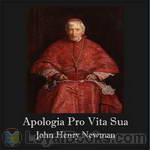 Apologia Pro Vita Sua
Apologia Pro Vita Sua
A religious autobiography of unsurpassed interest, the simple confidential tone of which "revolutionized the popular estimate of its author," establishing the strength and sincerity of the convictions which had led him into the Roman Catholic Church (Wikipedia). "No autobiography in the English language has been more read; to the nineteenth century it bears a relation not less characteristic than Boswell's 'Johnson' to the eighteenth." Rev. Wm. Barry, D.D. | |
By: Alexander Kinglake | |
|---|---|
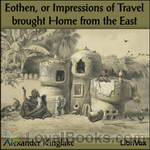 Eothen, or Impressions of Travel brought Home from the East
Eothen, or Impressions of Travel brought Home from the East
A classic of Victorian travel writing, Kinglake’s book describes his journey through the Ottoman empire to Cairo, and his residence there in time of plague. | |
By: Frédéric Bastiat | |
|---|---|
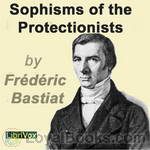 Sophisms of the Protectionists
Sophisms of the Protectionists
"To rob the public, it is necessary to deceive them," Bastiat said and believed. He reasoned, employing repetition to various applications, against fallacious arguments promoting the "Protection" of industries to the detriment of consumers and society. (Introduction by Katie Riley) | |
By: Maria Gentile | |
|---|---|
 The Italian Cook Book
The Italian Cook Book
One of the beneficial results of the Great War has been the teaching of thrift to the American housewife. For patriotic reasons and for reasons of economy, more attention has been bestowed upon the preparing and cooking of food that is to be at once palatable, nourishing and economical.In the Italian cuisine we find in the highest degree these three qualities. That it is palatable, all those who have partaken of food in an Italian trattoria or at the home of an Italian family can testify, that it is healthy the splendid manhood and womanhood of Italy is a proof more than sufficient... | |
By: Friedrich Engels (1820-1895) | |
|---|---|
 Condition of the Working-Class in England in 1844
Condition of the Working-Class in England in 1844
This is Engels' first book (since considered a classic account of England's working class in the industrial age), which argues that workers paid a heavy price for the industrial revolution that swept the country. Engels wrote the piece while staying in Manchester from 1842 to 1844, based on th bohis observations and several contemporary reports conducted over the period. | |
By: Kate Douglas Smith Wiggin (1856-1923) | |
|---|---|
 The Girl and the Kingdom Learning to Teach
The Girl and the Kingdom Learning to Teach
| |
By: John S. C. Abbott (1805-1877) | |
|---|---|
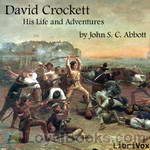 David Crockett: His Life and Adventures
David Crockett: His Life and Adventures
David "Davy" Crockett (August 17, 1786 – March 6, 1836) was a celebrated 19th century American folk hero, frontiersman, soldier and politician. He is commonly referred to in popular culture by the epithet “King of the Wild Frontier.” He represented Tennessee in the U.S. House of Representatives, served in the Texas Revolution, and died at the Battle of the Alamo. This narrative attempts faithfully to record the influences under which David Crockett was reared and the incidents of his wild and wondrous life... | |
 Empire of Russia from the Remotest Periods to the Present Time
Empire of Russia from the Remotest Periods to the Present Time
A history of Russia from 500 B.C. to 1855 A.D., written by John Stevens Cabot Abbott, the brother of Jacob Abbott. | |
By: Sara Ware Bassett (1872-1968) | |
|---|---|
 The Story of Silk
The Story of Silk
| |
 Steve and the Steam Engine
Steve and the Steam Engine
| |
 Story of Wool
Story of Wool
Mr. Clark and Donald spend a year out west to the Crescent Ranch in Idaho learning about raising sheep. | |
 The Story of Sugar
The Story of Sugar
| |
By: Estelle M. Hurll (1863-1924) | |
|---|---|
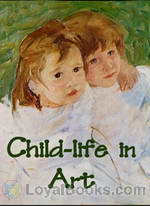 Child-life in Art
Child-life in Art
The poetry of childhood is full of attractiveness to the artist, and many and varied are the forms in which he interprets it. The Christ-child has been his highest ideal. All that human imagination could conceive of innocence and purity and divine loveliness has been shown forth in the delineation of the Babe of Bethlehem. The influence of such art has made itself felt upon all child pictures. It matters not whether the subject be a prince or a street-waif; the true artist sees in him something which is lovable and winning, and transfers it to his canvas for our lasting pleasure. | |
By: George Morang (1866-1937) | |
|---|---|
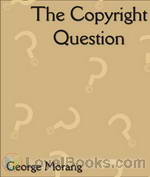 The Copyright Question
The Copyright Question
This is a letter to the Toronto Board of Trade regarding Canadian copyrights. Morang requested an appearance before the Toronto Board of Trade but was denied. This is his letter in response. He wished to make clear his position. | |